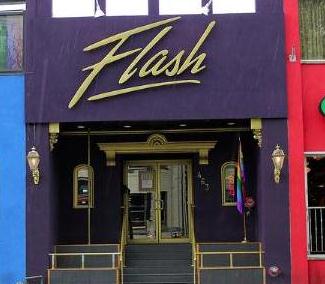Toronto City Council passed new regulations on strip clubs in a meeting Oct 30, but not before Ward 27 Councillor Kristyn Wong-Tam added an amendment instructing staff and police to consult with gay entertainers about how the new laws would work.
The new regulations clarify a number of existing statutes, including changing the current “no-touch” provisions to a ban on touching the “uncovered breasts, buttocks, genital, pubic, anal and perineal areas of a patron or any other person.”
The amended bylaw also requires private booths at strip clubs to allow “an unobstructed view of the interior to anyone in its immediate vicinity and in all lighting conditions,” effectively rendering them non-private. The new regulations come into force on Feb 1, 2013.
The regulations were proposed with the intent of protecting female dancers from predatory or unwanted touching from male patrons. But the conditions that male entertainers work under are markedly different, Wong-Tam says.
“The power dynamic from men to men is different from men to women,” she says. “But there was resistance to creating two or three sets of bylaws for [gay entertainers].”
“The LGBT community should be treated with a different lens, not different rules, but how we socialize in different clubs,” she says. “A lot of that activity is difficult to police, and should it even be policed?”
Wong-Tam also speculates that the new regulations will not result in any immediate changes to the industry, as the enforcement regime is based on complaints made to the city and is not proactive in inspecting clubs.
“The city has no resources to enforce this, but they wanted to update the law to reflect complaints they’d received from certain entertainers, for those who don’t want to be touched in a particular way,” she says.
“Workers who want to say no should have the right to say no. If the laws are not there to protect them, then they have no protection whatsoever. If a worker says yes, they don’t need to point to the law to say the law says no touching.”
The new regulations do not do away with the requirement that entertainers obtain a licence from the city, as some in the industry had hoped. Under the current law, the city maintains a publicly accessible database of everyone who works or has worked as a stripper in Toronto. Some entertainers say this can stigmatize them when looking for housing or employment later in life, although city staff maintain that the registry is necessary to prevent human trafficking and minors from working in strip clubs.
Council also directed staff to consult with other municipalities and the province on creating a harmonized provincial law regulating the industry.


 Why you can trust Xtra
Why you can trust Xtra


